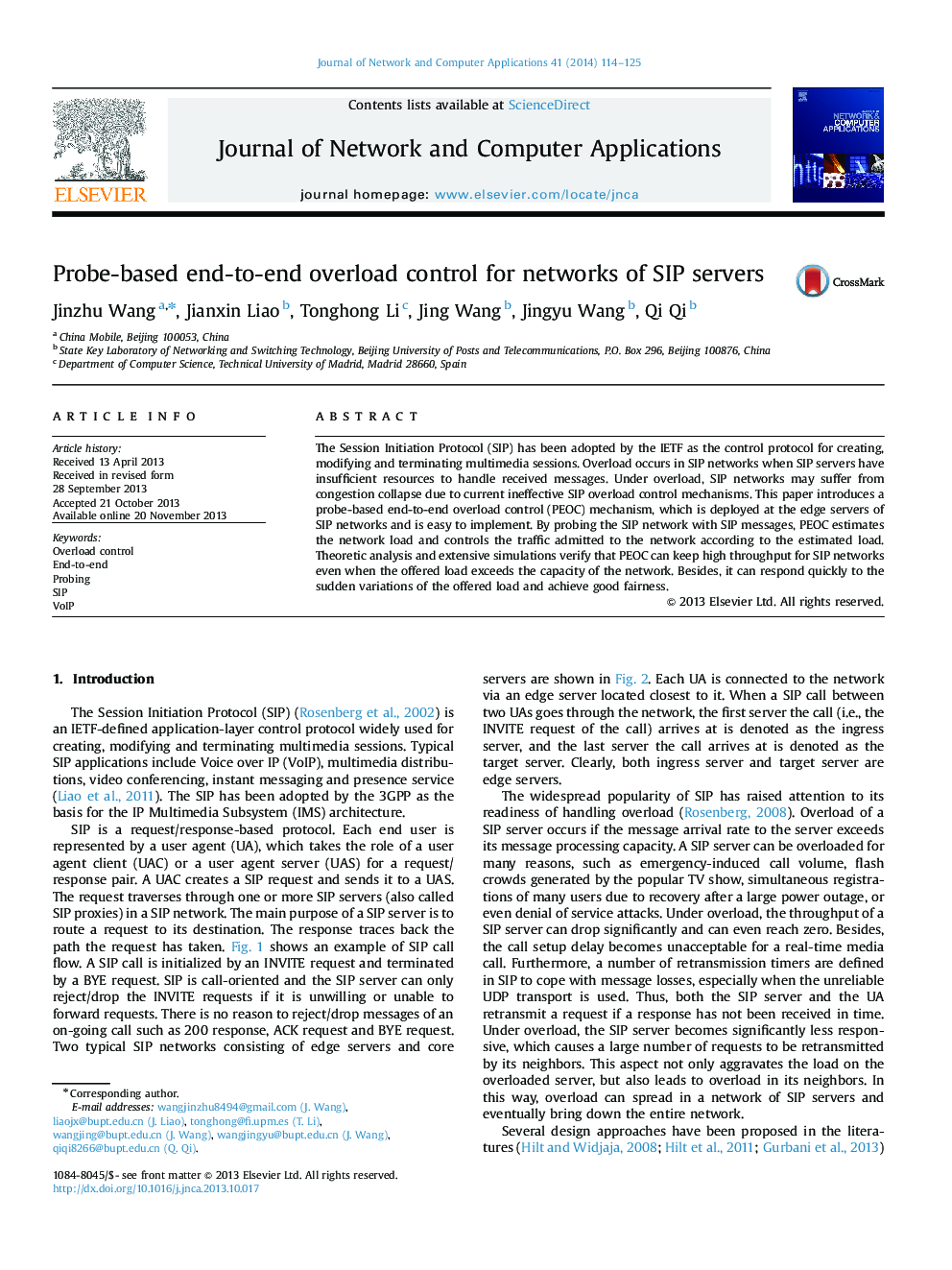| Article ID | Journal | Published Year | Pages | File Type |
|---|---|---|---|---|
| 457217 | Journal of Network and Computer Applications | 2014 | 12 Pages |
The Session Initiation Protocol (SIP) has been adopted by the IETF as the control protocol for creating, modifying and terminating multimedia sessions. Overload occurs in SIP networks when SIP servers have insufficient resources to handle received messages. Under overload, SIP networks may suffer from congestion collapse due to current ineffective SIP overload control mechanisms. This paper introduces a probe-based end-to-end overload control (PEOC) mechanism, which is deployed at the edge servers of SIP networks and is easy to implement. By probing the SIP network with SIP messages, PEOC estimates the network load and controls the traffic admitted to the network according to the estimated load. Theoretic analysis and extensive simulations verify that PEOC can keep high throughput for SIP networks even when the offered load exceeds the capacity of the network. Besides, it can respond quickly to the sudden variations of the offered load and achieve good fairness.
